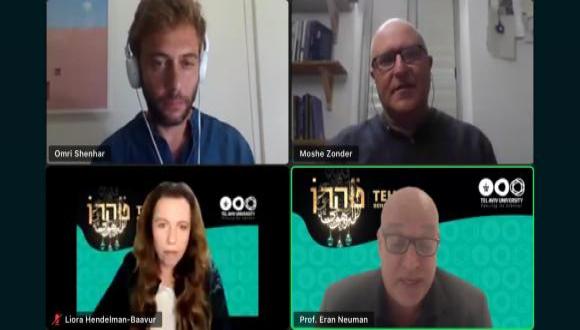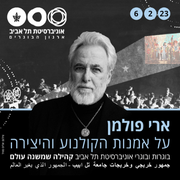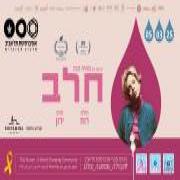The people behind the hit series "Tehran" – On s Zoom meeting with TAU Alumni from all over the world
The TAU Alumni Organization, headed by Sigalit Ben Hayoun, continues it’s tradition of meetings with inspiring alumni, even during the COVID era. Hundreds of alumni from all over the world gathered last week to hear the alumni who created the acclaimed masterpiece series, the Israeli spy drama "Tehran".
The TAU Alumni Organization, headed by Sigalit Ben Hayoun, continues it’s tradition of meetings with inspiring alumni, even during the COVID era. Hundreds of alumni from all over the world gathered last week to hear the alumni who created the acclaimed masterpiece series, the Israeli spy drama "Tehran".
At the center of the discourse, moderated by Dr. Liora Hendelman-Baavur - Director of the TAU Alliance Center for Iranian Studies and alumna of the TAU Faculties of Humanities and Social Sciences, were Omri Shenhar - Screenwriter and Co-Creator of "Tehran", alumnus of TAU’s Steve Tisch School of Film and Television, and Moshe Zonder - Creator and Head Writer of "Tehran", who studied as well at TAU’s Steve Tisch School of Film and Television.
The event started with greetings by Prof. Eran Neuman, Dean of TAU’s Yolanda and David Katz Faculty of the Arts, who greeted the attendees in three languages, promised not to spoil for those who had not yet seen ‘Tehran’, complimented the series' star Niv Sultan, and emphasized that the story is not about Nuclear War but the personal stories depicted in the series.
Omri and Moshe are not of the same generation, and Moshe the senior among them, was the first to answer about his experience studying at TAU: "The first year in TAU’s film department was one of the most significant years in my life, for example meeting the late Emil Knebel (Milek) as teacher of Film Direction". “The person who introduced Omri and me was the Co-Creator and producer of Tehran, Dana Eden”.
When asked by Dr. Hendelman-Baavur what about creating the series did the two like particularly, Omri said: "Who is the good guy and who is the bad guy? Which one do you identify with more - with your side or with the opponent’s?". Moshe: "I loved writing the character of Faraz Kamali". Omri added: "We discover Tehran through Tamar’s eyes, and it was special to do it through the eyes of a modern woman".
Moshe: "It was a challenge not to make mistakes based on ignorance or arrogance in presenting the Iranian figures, which led to a two-year research that preceded the writing process". Omri: "We met people who know Iran from the inside. You find these amazing stories, the ones that never reach the media. We brought that to the screen."
Moshe stated: " Responses to the series are coming from all over the world, but the most exciting, to me, came from second generation Jewish families who immigrated to Israel from Iran. Women and men aged 30-40, who came as children or were born in Israel and grew up ashamed of their parents’ Persian accent and their family heritage. Watching the series made them proud of their parents. I understand what they are talking about. I went through a similar process with my own family heritage".
Omri: "I was afraid that people might watch the series based on prejudice, but there were none. We get compliments, from Iran, for showing a different, less threatening side of the country, and that people there live their lives". Moshe added that "The series deals with questions of identity, nationality, immigration, the possibility of breaking away from family roots and the price of such choices. Everyone in the world belongs to a tribe, that feeds us a narrative since we are little children. Thanks to Apple TV Plus’ streaming platforms, viewers from all around the world can watch the series and everyone may relate to it, no matter what nationality or religion they belong to".
To curious attendee’s questions, they replied: "We have many ideas for a second season", but did not share more.
Moshe’s advice for the future generation of creators: "Write only about what interests you and excites you. Don’t try to aim at anyone's taste, and don’t despair if your scripts are rejected. The successful TV series ‘Fauda’ was initially rejected, as was ‘Tehran’. And most importantly - remember that writing is rewriting, over and over again". Omri added about building a career: "Even if you are involved in something else, keep writing. Until you succeed. It's not like in the movies, it's hard work."
Among the webinar’s attendees:
Founder of Medivisor (a company that provides patients with medical information) Tal Givoly, CEO of DFM Dror Flomin (Flumin), Group CEO of Allium Medical Solutions Ariel Rubashkin and many more.




